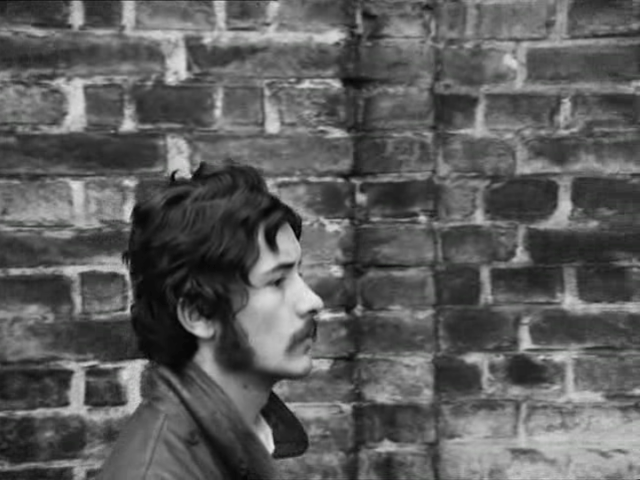 |
| Volker Spengler in In a Year With 13 Moons |
You might need to be better versed in Schopenhauer and Nietzsche than I am to give a full account of Rainer Werner Fassbinder's In a Year With 13 Moons, but two things are immediately apparent: It's a fable about identity and desire, and it's a very personal film for its maker. Fassbinder wrote, directed, photographed, and edited the movie as a response to the death of his lover Armin Meier. The story gradually tells us about the life of Elvira Weisshaupt (Volker Spengler), a transgender woman who began as Erwin Weisshaupt, married and fathered a daughter, but after falling in love with a man decided to undergo surgery and become Elvira. Some ambivalence about her transition seems to remain: At the beginning of the film, she has dressed as a man in order to solicit sex from male prostitutes, but that ends with her being severely beaten. When she returns to the apartment she shares with her lover, Christoph (Karl Scheydt), he angrily packs a suitcase and storms out. Over the next few days, with the help of a prostitute named Zora (Ingrid Caven), Elvira seeks out a nun (Lilo Pempeit), whom she knew from her childhood in an orphanage and who tells her the truth about her parentage. She also visits with her ex-wife and her daughter, and makes her way in to see the man who inspired her transition, the powerful Anton Saitz (Gottfried John), a reunion that cannot end well. Despite the tragic drift of Elvira's story, there are ludicrous moments, as when she joins with the employees in Saitz's office in recreating a routine from a movie starring Dean Martin and Jerry Lewis that is playing on the office television. There's also a gruesome sequence in a slaughterhouse as well as a brief interlude in which Elvira watches a man commit suicide after expounding his Schopenhaueresque philosophy of the will. This is Fassbinder at both his most enigmatic and his most heartfelt.



